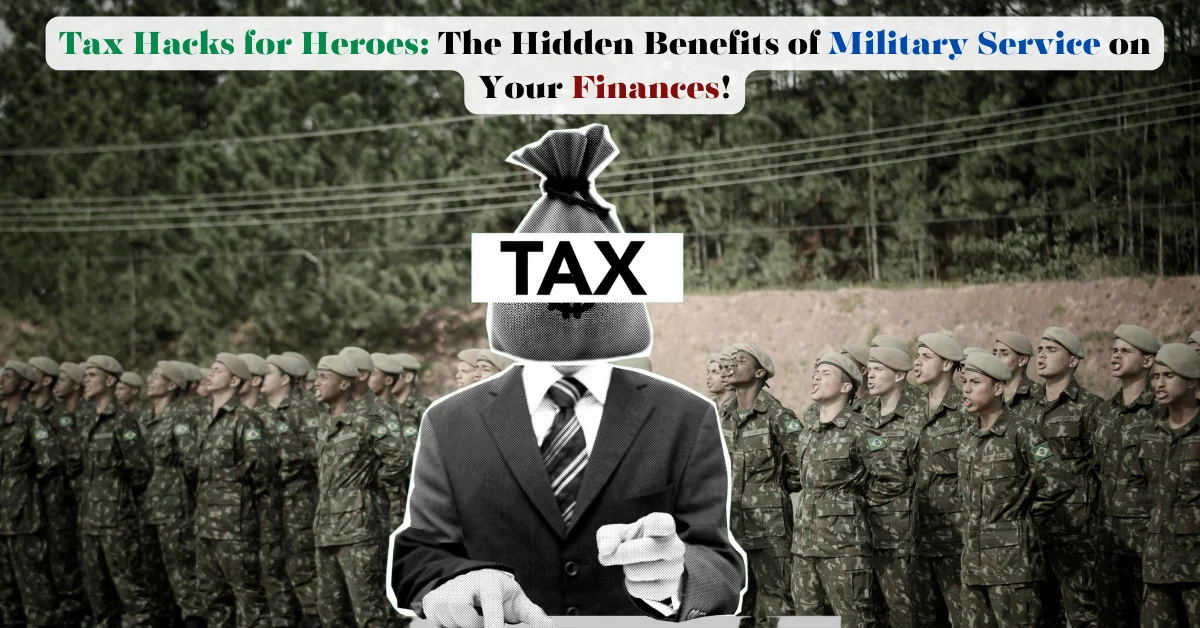
How Does Being a Military Veteran Affect Your Taxes?
In the realm of tax obligations, military veterans often find themselves navigating a unique set of rules and regulations. Understanding how military service affects your taxes is crucial to ensuring that you’re in compliance with the law and maximizing potential benefits. In this comprehensive guide, we will delve into the various aspects of military service and its impact on your tax liability.
Federal Taxation of Military Retirement Pay
Military retirement pay, while a well-deserved reward for years of service, is subject to federal taxation. Veterans who rely solely on their military pension may be taken aback when filing their first tax return after leaving the service. It’s important to note that military retirement income, when combined with income from civilian employment or a spouse’s income, can potentially push veterans into a higher federal income tax bracket. This can result in an unexpected tax liability.
To address this concern, it’s advisable for veterans to evaluate and possibly adjust their tax withholding for other sources of income, including military retirement pay. The IRS offers an online Tax Withholding Estimator tool to help veterans determine their expected tax liability in advance, facilitating better financial planning.
Tax Benefits for Disabled Veterans
One significant advantage for disabled veterans is that disability compensation benefits and disability retirement pay are generally exempt from federal taxation. Disability benefits received from the Department of Veterans Affairs (VA) are excluded from gross income and are not subject to tax. Additionally, other forms of disability compensation and benefits, such as those received under a dependent care assistance program, are also not taxable.
Eligibility for these benefits varies, so it’s essential for veterans to check the specific rules and requirements to determine which tax benefits they qualify for.
Veterans Education Benefits
Veterans who receive education, training, or subsistence payments from the VA do not have to report these payments as income on their federal tax returns. This provision eases the financial burden on veterans pursuing education or vocational training after their military service. It’s worth noting that these education benefits can significantly lower taxable income and are a valuable resource for veterans seeking to further their education.
Special Tax Refund Considerations
Retired military service members may be eligible for a federal tax refund in specific situations. For example, if a veteran experiences an increase in disability percentage or is granted combat-related special compensation after concurrent retirement and disability, they may be entitled to a tax refund. However, it’s important to recognize that veterans may need to file a tax return to claim disability deductions or exemptions. Should their income change, they should re-evaluate their eligibility and file an amended return if necessary.
Consulting a trusted tax advisor is recommended for veterans who need to navigate special tax considerations, ensuring they make the most of available benefits.
Property Tax Breaks for Disabled Veterans
Many states offer property tax exemptions for disabled veterans, aiming to provide financial relief to those who have served their country. The criteria and rules for eligibility vary from state to state, so it’s crucial for veterans to research their specific region’s guidelines. In general, these exemptions are reserved for disabled veterans, but some states may also extend property tax relief to older adults aged 65 and above. Exploring these options can significantly reduce the property tax burden for veterans and their families.
Earned Income Tax Credit (EITC) for Veterans
The Earned Income Tax Credit (EITC) is a tax benefit often overlooked by eligible veterans and military households. This credit is designed for individuals with earned income under a certain threshold, making it a valuable resource for veterans and military families. For the tax year 2023, the threshold is set at $63,698, and the EITC can reduce the amount of taxes owed or result in a tax refund.
It’s worth noting that almost two million veterans and military households receive this credit, making it a substantial financial benefit. Some states also offer their own earned income tax credits, providing further opportunities for tax savings.
State Tax Treatment of Military Retirement Income
While most states fully exempt military retirement income from state income tax, there are exceptions. Some states do not provide favorable tax treatment for military income, and others only offer partial tax breaks to veterans. It’s essential for veterans to be aware of the specific tax regulations in their state of residence.
States that partially tax retirement income include Delaware, Georgia, Idaho, Kentucky, Maryland, Montana, New Mexico, Oregon, Vermont, and Virginia. Notably, the District of Columbia and California fully tax military pensions.
Conclusion
In conclusion, understanding how being a military veteran affects your taxes is crucial for financial planning and compliance with tax laws. While military retirement pay is subject to federal taxation, veterans can explore various tax benefits and exemptions, such as disability benefits and property tax relief. Additionally, the Earned Income Tax Credit (EITC) can provide significant tax savings.
To make the most of these opportunities, veterans should stay informed about the tax regulations in their state and consult with tax advisors when necessary. By doing so, veterans can navigate the complex terrain of tax obligations with confidence, ensuring that they receive the benefits they deserve while fulfilling their tax responsibilities.





